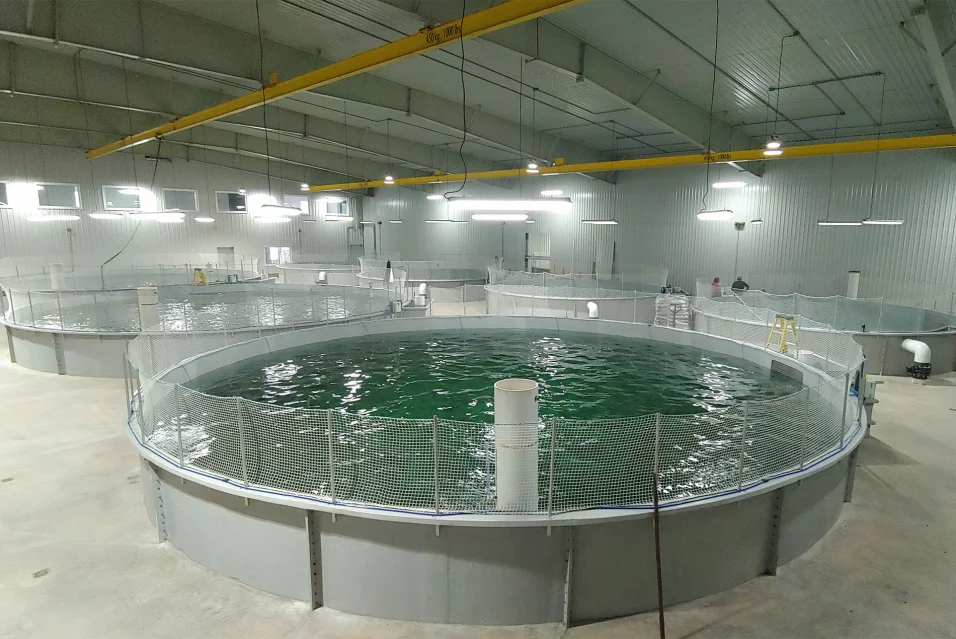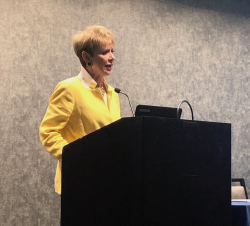
AquaBounty seizes opportunity to support growing needs of RAS operators
November 3, 2021
By
Liza Mayer
 AquaBounty’s RAS farm in Rollo Bay, Prince Edward Island will switch over to producing only conventional (non-GE) Atlantic salmon eggs over the next two years to supply growing industry demand. (Photo: Aquabounty Technologies)
AquaBounty’s RAS farm in Rollo Bay, Prince Edward Island will switch over to producing only conventional (non-GE) Atlantic salmon eggs over the next two years to supply growing industry demand. (Photo: Aquabounty Technologies) AquaBounty’s production facility in the Canadian province of Prince Edward Island will no longer produce market-size genetically engineered (GE) salmon after the current batch is harvested. Instead, the facility will be entirely dedicated to producing conventional salmon broodstock, conventional eggs and GE eggs and fry.
The PEI facility has always produced conventional Atlantic salmon eggs and fry, although only in small volumes. And when production exceeds AquaBounty’s needs, they are sold to other farmers in Canada.

AquaBounty CEO Sylvia Wulf delivered the keynote at the 2019 RAStech conference.
But the growing number of new RAS farms planned or under development in North America has created an opportunity for AquaBounty to capitalize on its egg production expertise, said Sylvia Wulf, President & CEO, AquaBounty, told Aquaculture North America.
Over the next two years, the company intends to ramp up production of conventional salmon eggs in PEI from the current 8 million eggs annually to 30 million to meet the rising demand from conventional salmon farmers in the region.
The company noted that conventional eggs and GE eggs are sourced from the same conventional broodstock. The conventional eggs become GE eggs by fertilizing them with milt from neomales, and then they are pressure-shocked to make them sterile. The conventional eggs and fry are raised in separate rooms from the GE eggs to ensure their biosecurity. AquaBounty’s farm in Indiana sources GE eggs from the PEI facility.
“We believe our 25 years of experience and learning from our current operations continues to position us to achieve our goal of profitably producing commodity-priced salmon safely, securely and sustainably,” said Wulf.
The company said meanwhile that plans to build its next-generation farm in the village of Pioneer in Ohio are on track. It has made “solid progress” finalizing site engineering designs and permitting since the site announcement in July, it said, and expects construction to start by year-end. If all go accordingly, the commercial stocking of salmon is estimated to occur in 2023.





